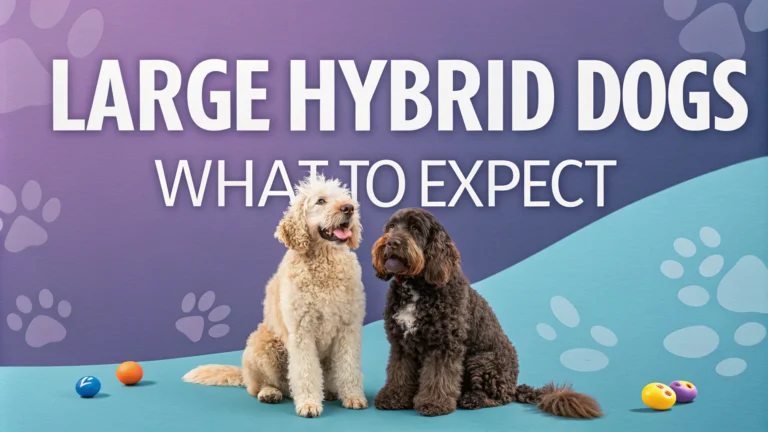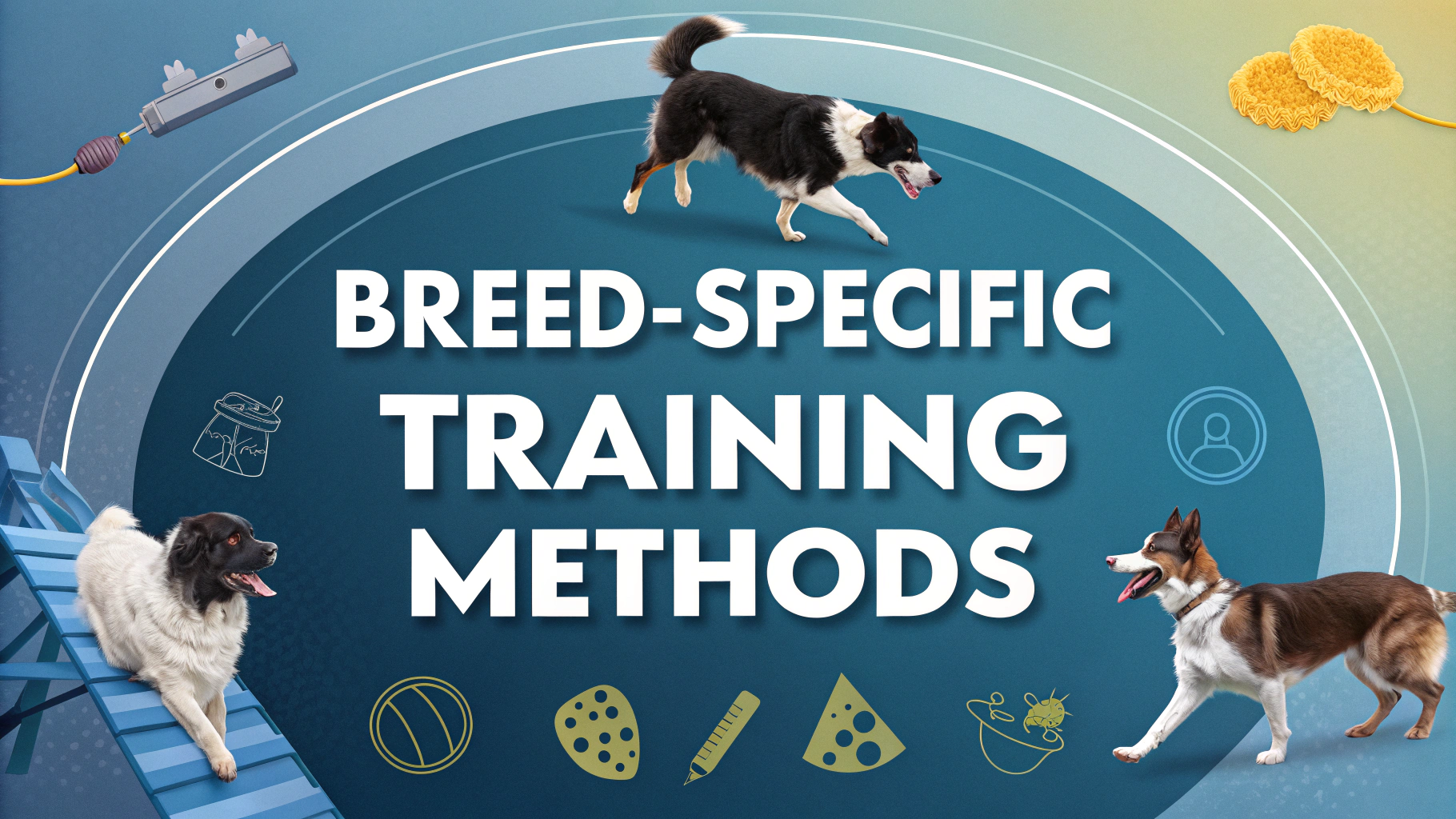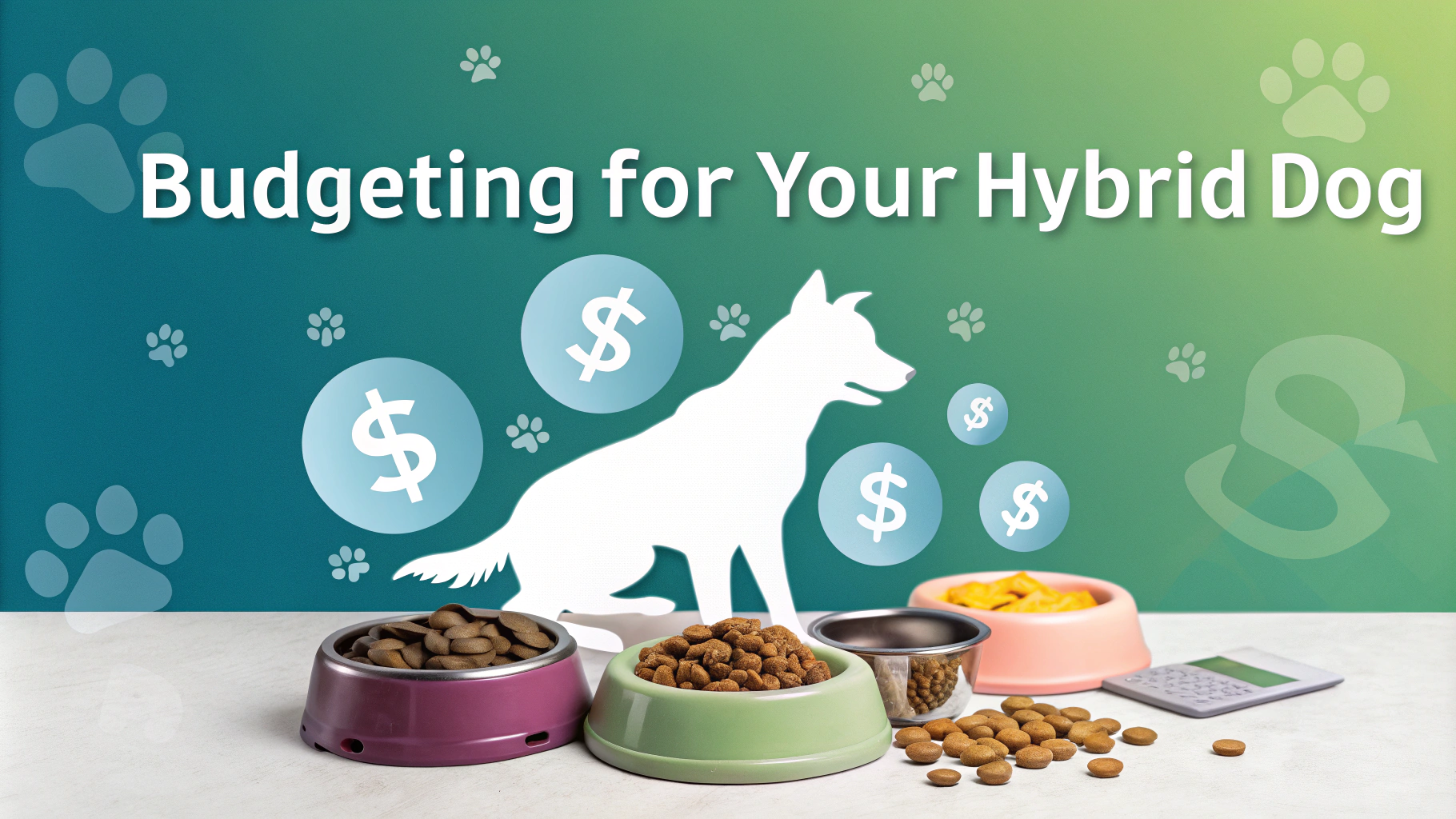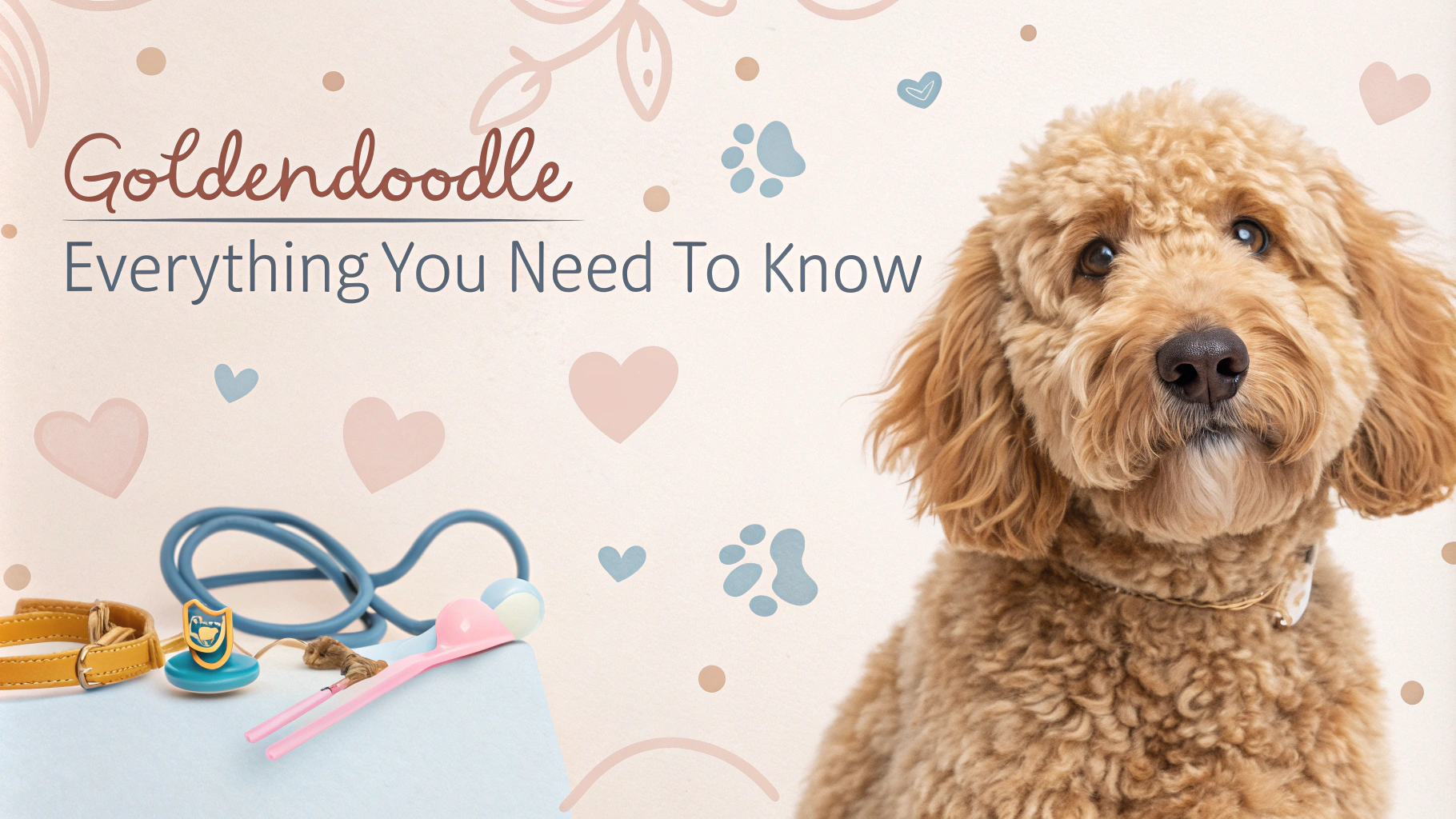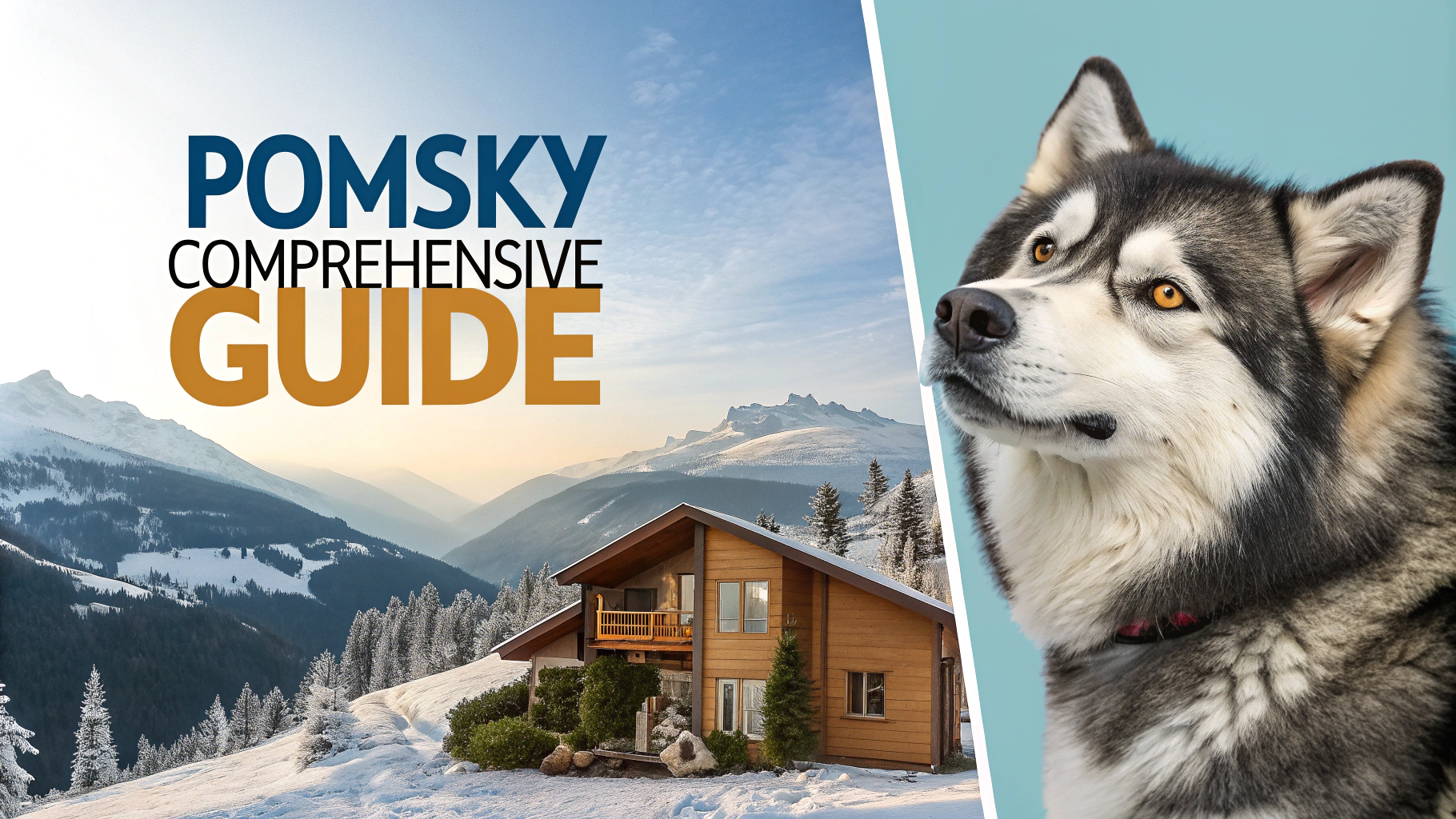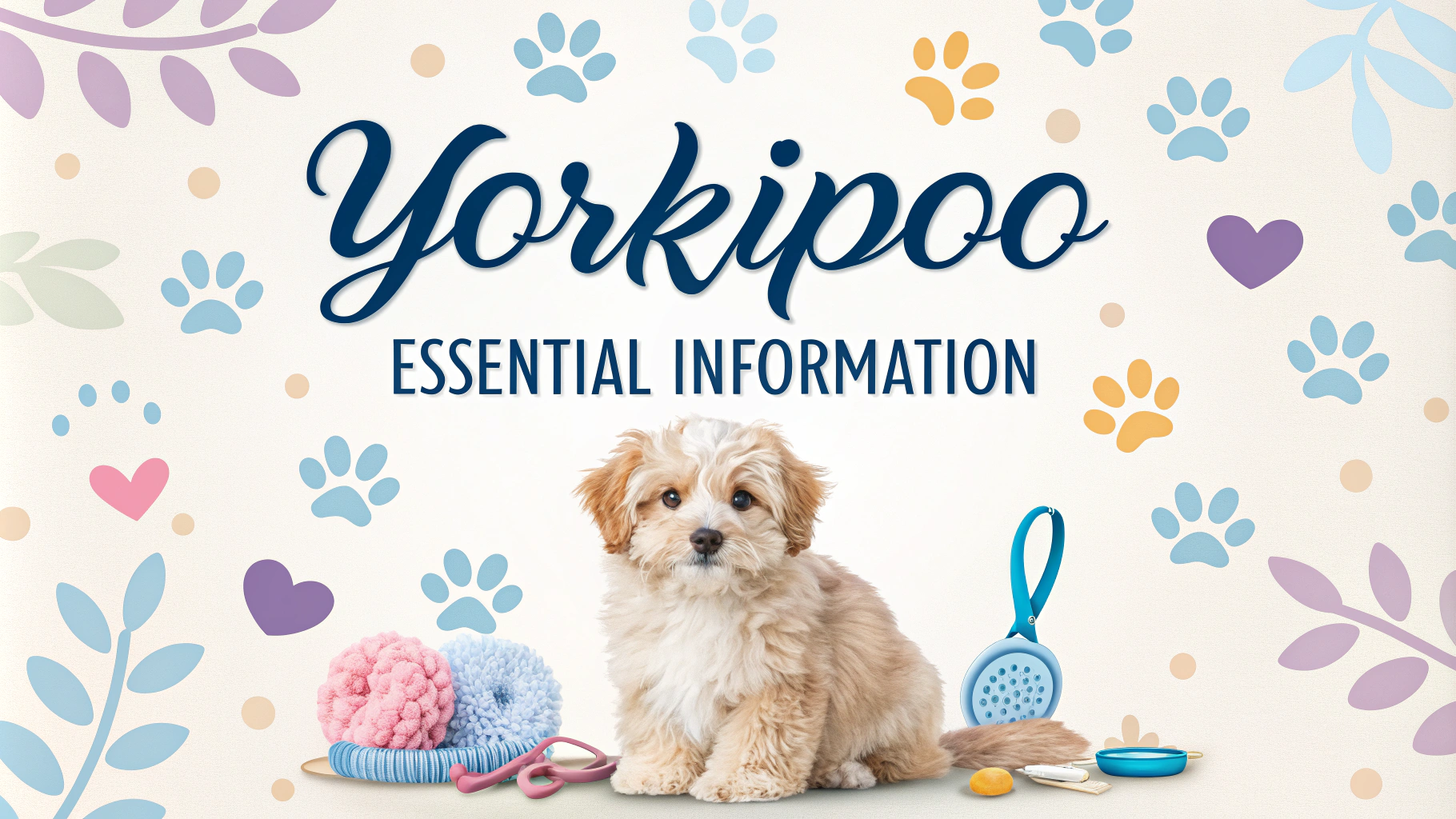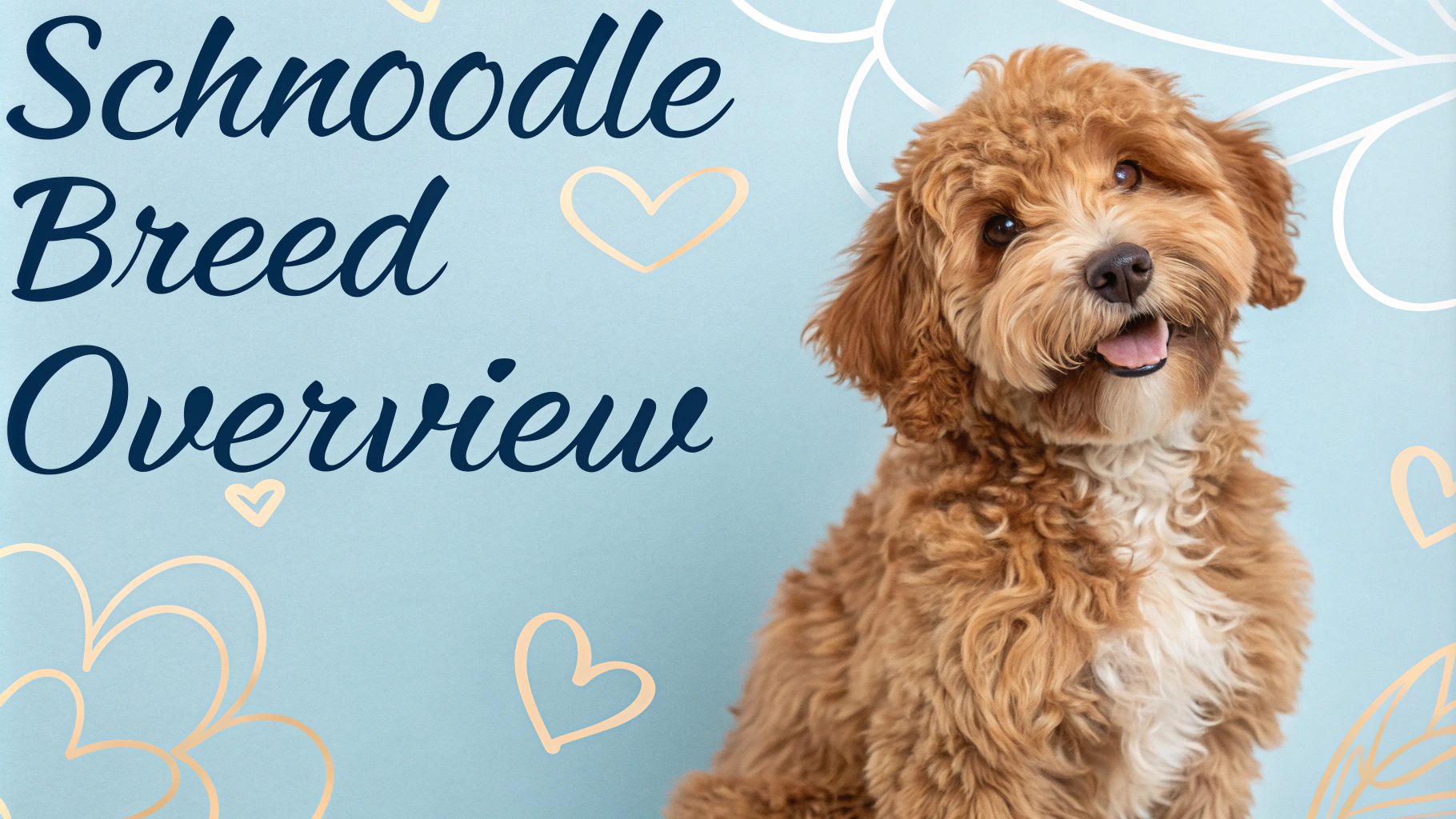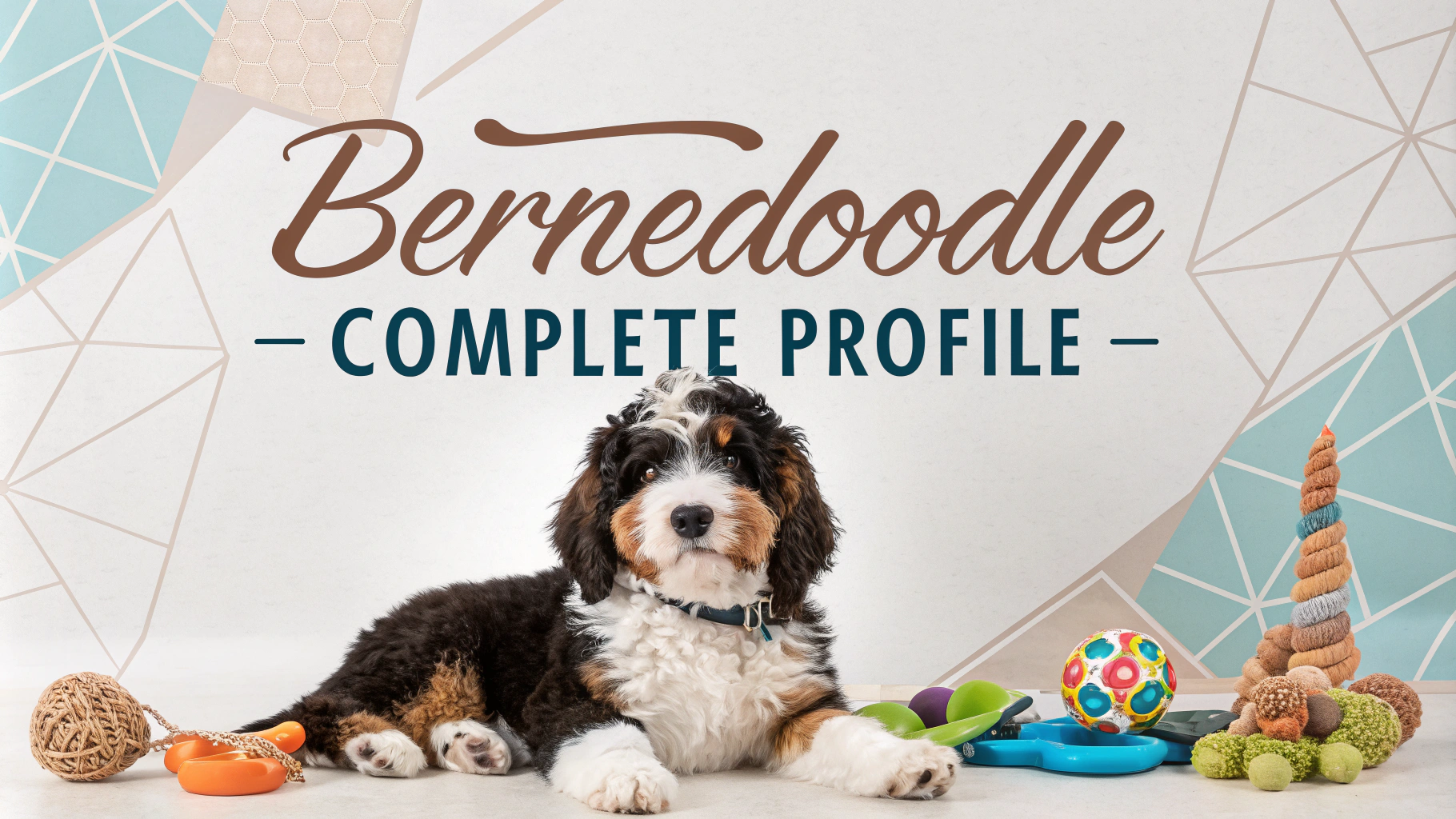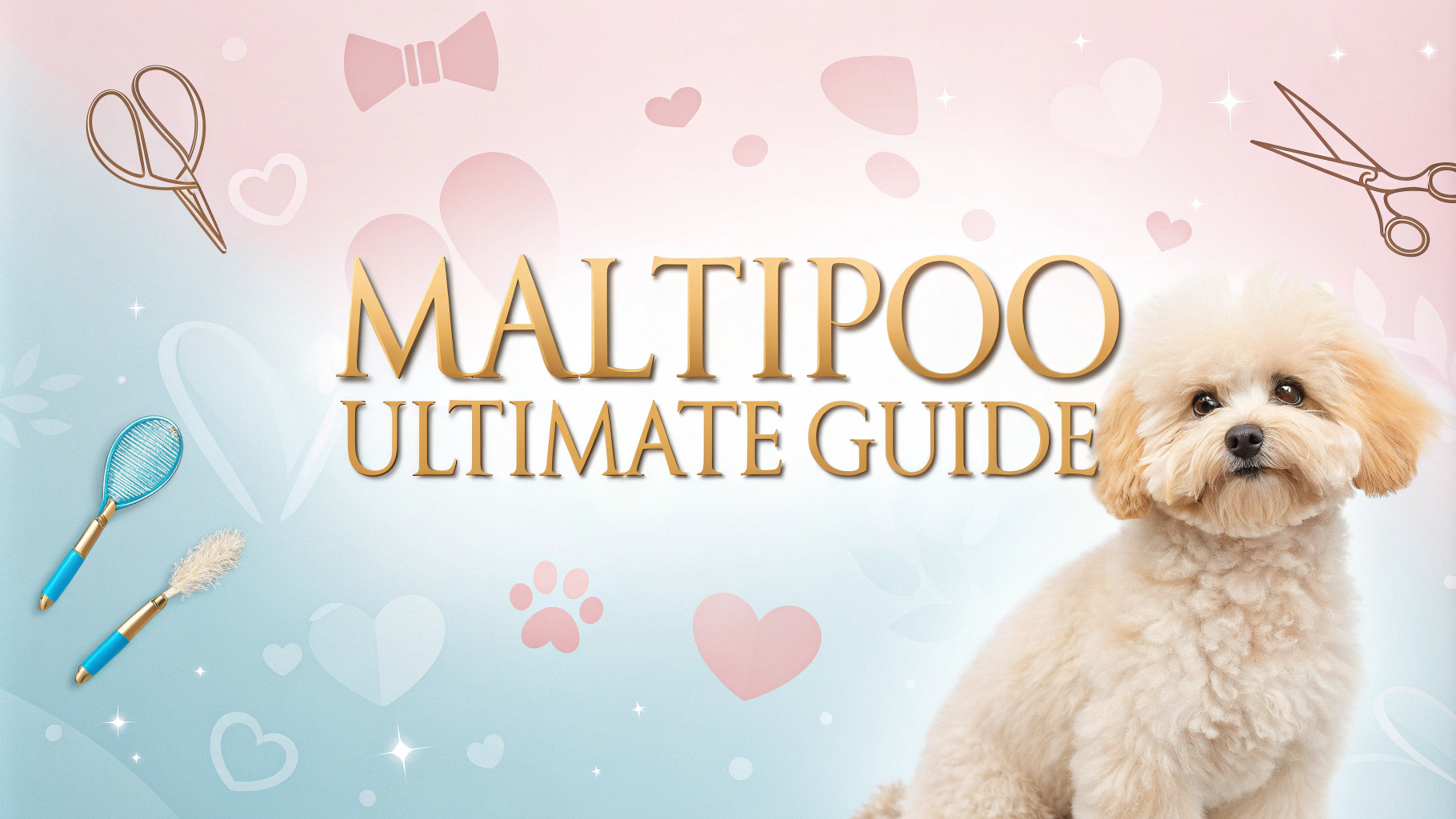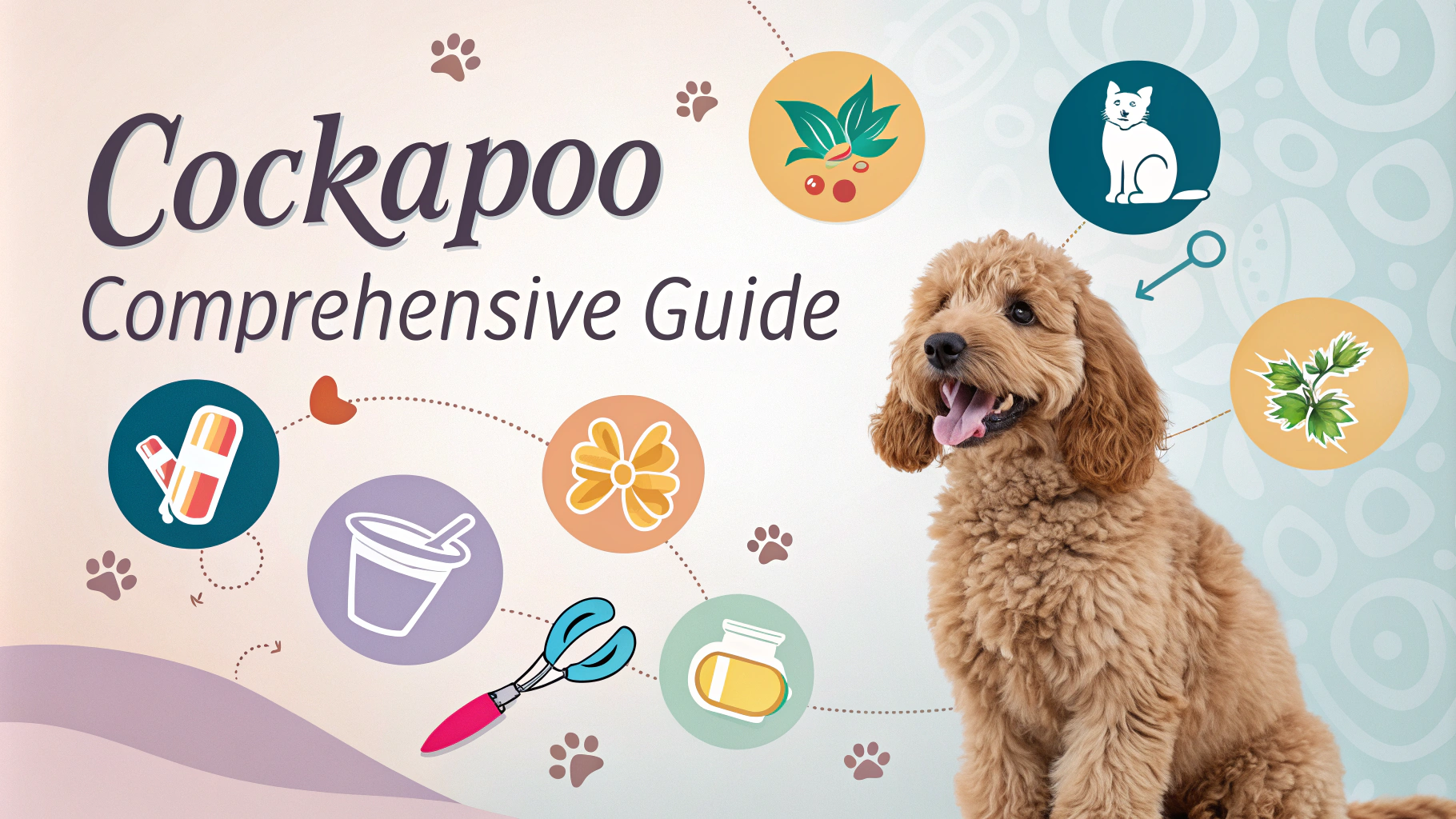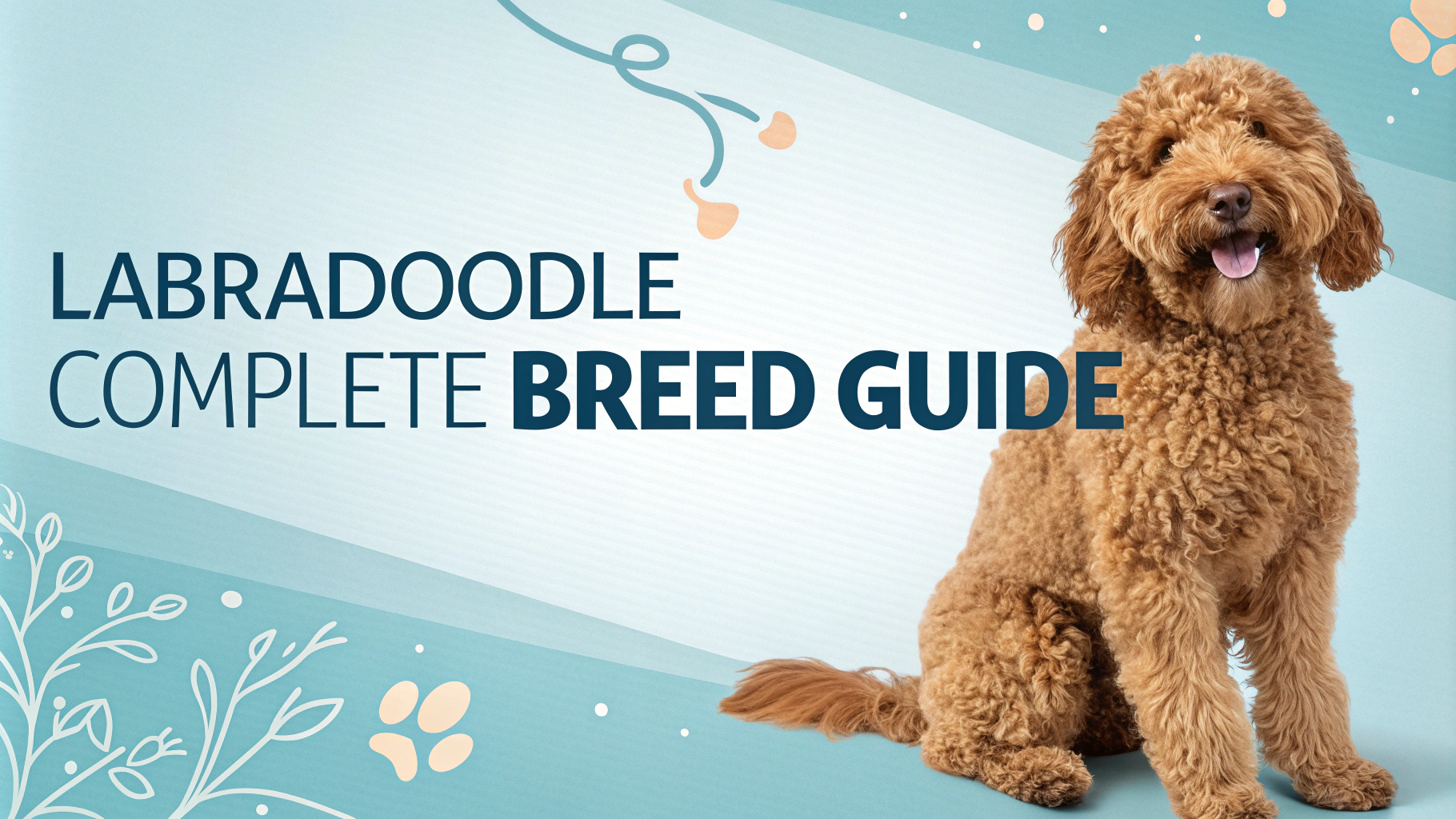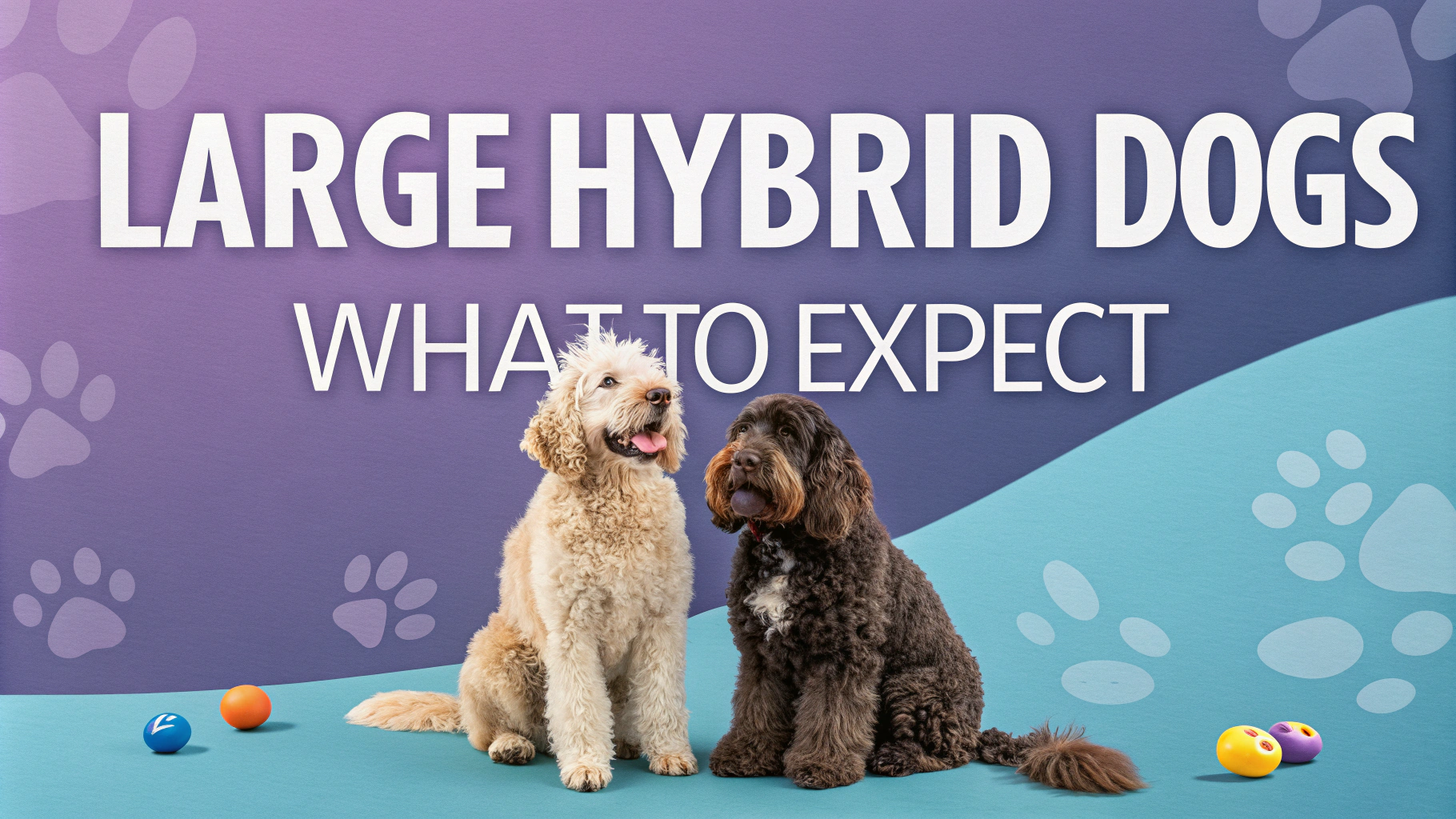Large hybrid dogs combine the traits of two purebred parents, creating unique companions that often exceed 50 pounds at maturity.
Popular Large Hybrid Dogs
- Goldendoodle (Golden Retriever + Poodle)
- Labradoodle (Labrador + Poodle)
- Great Danoodle (Great Dane + Poodle)
- Shepadoodle (German Shepherd + Poodle)
- Saint Berdoodle (Saint Bernard + Poodle)
Space Requirements
Large hybrid dogs need substantial living space, preferably a house with a fenced yard.
Exercise Needs
- 60-90 minutes of daily exercise
- Regular walks
- Interactive play sessions
- Mental stimulation activities
Food and Nutrition
These dogs typically require 3-5 cups of high-quality food daily, split between two meals.
| Age | Daily Food Amount |
|---|---|
| Puppy (2-6 months) | 3-4 cups |
| Adult (6+ months) | 4-5 cups |
Health Considerations
- Hip dysplasia
- Bloat
- Joint issues
- Heart problems
Regular vet check-ups every 6 months help monitor these potential health issues.
Grooming Requirements
- Brush 2-3 times weekly
- Professional grooming every 8-12 weeks
- Regular nail trimming
- Dental care
Training Tips
- Start training early (8-16 weeks)
- Use positive reinforcement
- Focus on leash training
- Establish consistent commands
For professional training assistance, contact the Association of Professional Dog Trainers at apdt.com.
Cost Expectations
| Expense | Estimated Cost |
|---|---|
| Purchase Price | $1,500-$5,000 |
| Annual Food | $700-$1,000 |
| Vet Care | $500-$1,000 |
| Grooming | $600-$1,200 |
Finding a Reputable Breeder
- Ask for health clearances
- Meet both parent dogs
- Request references
- Visit the breeding facility
Contact the American Kennel Club (akc.org) for breeder referrals and additional resources.
Socialization Needs
- Early exposure to different people
- Interaction with other dogs
- Various environmental experiences
- Regular visits to dog parks
Living Environment Adaptations
- Secure fencing (minimum 6 feet high)
- Designated sleeping area
- Pet gates for restricted areas
- Durable toys and chew items
Family Compatibility
Best Suited For:
- Active families
- Experienced dog owners
- Homes with outdoor space
- Those with flexible schedules
Common Behavioral Traits
- High intelligence
- Strong bonding tendency
- Protective instincts
- Social nature
Conclusion
Large hybrid dogs offer unique combinations of beloved breeds, making them excellent companions for the right owners. Success with these dogs requires commitment to proper training, exercise, and care. While initial costs and maintenance can be substantial, their loyalty and companionship make them worthwhile investments for prepared families. Proper research and preparation are essential before bringing one of these magnificent hybrids into your home.
FAQs
- What defines a large hybrid dog breed?
A large hybrid dog breed typically weighs over 50 pounds when fully grown and is the result of crossing two different purebred large dog breeds. - What are some common health issues in large hybrid dogs?
Large hybrid dogs commonly face hip dysplasia, bloat (gastric dilatation-volvulus), joint problems, and heart conditions, though they may experience hybrid vigor that reduces some hereditary issues. - How much exercise do large hybrid dogs need daily?
Most large hybrid dogs require 1-2 hours of daily exercise, including walks, play sessions, and mental stimulation activities to maintain their physical and mental health. - What is the average lifespan of a large hybrid dog?
Large hybrid dogs typically live between 8-12 years, though this can vary depending on the specific breeds in the mix and their overall health care. - How much food do large hybrid dogs consume?
Large hybrid dogs usually consume 3-6 cups of high-quality dog food daily, split into two meals, with exact amounts depending on their size, activity level, and metabolism. - What are some popular large hybrid dog breeds?
Popular large hybrid breeds include the Goldendoodle (Golden Retriever/Poodle), Mastidoodle (Mastiff/Poodle), and Sheprador (German Shepherd/Labrador Retriever). - Are large hybrid dogs good with children?
While temperament varies by individual dog and breeding, many large hybrids inherit family-friendly traits from their parent breeds, but early socialization is crucial. - What living space requirements do large hybrid dogs need?
Large hybrid dogs typically need substantial indoor living space and access to a fenced yard, though some can adapt to apartment living if given adequate exercise. - How much grooming do large hybrid dogs require?
Grooming needs vary by coat type, but most large hybrids need brushing 2-3 times weekly, regular nail trimming, and professional grooming every 8-12 weeks. - What is the average cost of owning a large hybrid dog?
Initial costs range from $1,500-$5,000 for the puppy, with annual expenses of $1,500-$3,000 for food, veterinary care, grooming, and supplies.
